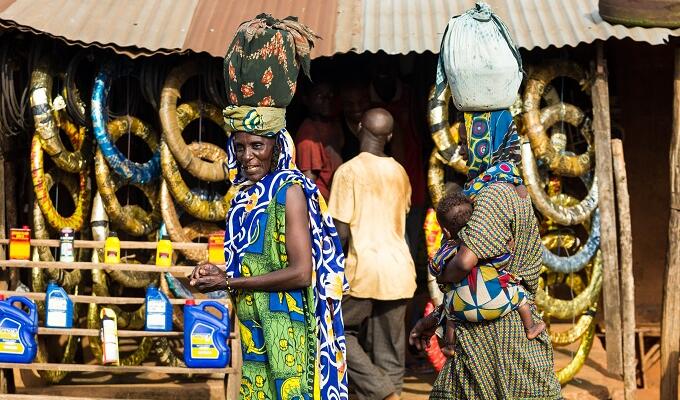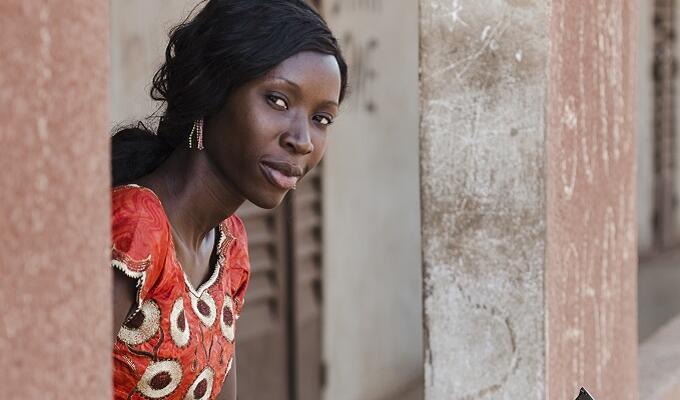



The heart of the matter (en)
Ambassador Albert M. Muchanga of Zambia, the African Union’s Commissioner for Trade and Industry, is a driving force behind the creation of the African Continental Free Trade Area (AfCFTA). His watchword is ‘inclusion’ – making sure the new trading arrangement between African nations boost the economic opportunities of poor people, young people and women. Commissioner Muchanga, who gave a keynote address at ITC’s SheTrades Global meeting in Addis Ababa in November, took the time to address the specific area of women’s economic empowerment in Africa and the dawn of the AfCFTA era.
How can women benefit from the trading regime of the AfCFTA?
AMBASSADOR MUCHANGA: African women are a very powerful but untapped economic force. They will play a key role in the battle to address the developmental challenges that Africa currently faces. However, the current challenges that women face from the privacy of the household to the public sphere of politics, are a major detriment to the continent’s socioeconomic development.
We cannot have sustainable development without inclusivity. In this respect, increasing women’s incomes is an important investment. Research shows that women are more in control over household resources, and tend to spend more on food, better health and schooling for their children. From all this, one can confidently say that when you empower a woman, you empower a family. Nationally, when you empower women, you empower a nation. Continentally, when you empower African women, you empower Africa as a continent.
How can the AfCFTA be a vehicle to promote women’s economic empowerment?
AMBASSADOR MUCHANGA: One of the general objectives of the AfCFTA as outlined in Article 3 (e) of the Agreement Establishing the AfCFTA is to: “promote and attain sustainable and inclusive socioeconomic development, gender equality and structural transformation of the third parties.” Thus, ensuring that gender equality is promoted in all processes of the AfCFTA is at the heart of the agreement establishing the AfCFTA. I will provide a few examples to support this:
First: the Rules of Origin that will support the AfCFTA Agreement permit access to cheaper raw materials and intermediate inputs. In this respect, women participating in regional value chains would be able to produce goods and services with significant African content in terms of raw materials and value addition, and export them either as finished products or intermediate goods.
Second: the criteria of the AfCFTA for designating certain products, taking into consideration restrictive trade liberalization measures on specific products deemed essential to women’s needs such as reproductive health products and agro-processing.
Third: the AfCFTA also promote the use of simplified trade regimes for facilitating small-scale cross-border traders and smallholder farmers through measures that promote their integration into larger value chains. This is important because women entrepreneurs represent the majority of cross-border traders across Africa.
In 2017, the United Nations Food and Agriculture Organization estimated that 70% of informal traders in the Southern Africa Development Community are women. In West and Central Africa, informal cross-border trade among women represents more than 60% and generates about 4% to 6% of the GDP of the countries concerned. This cross-border trade, which is driven by increasing populations, and growing urbanization and agriculture, provides the foundation for a diversified and competent African economy. It is with this in mind that work is underway on how to mainstream informal cross-border traders into formal African trade.
Fourth: the provisions of the AfCFTA annex on Standards and Phytosanitary Measures entails the mutual recognition of standards, licensing and certification of service suppliers across the continent. The intention is to make it easier for our women entrepreneurs to meet export standards and satisfy regulatory requirements for niche markets. It is in this respect that we will soon be commissioning a study on mainstreaming of women in intra-African trade.
What about public procurement? Can the AfCFTA assist in scaling up the business that governments do with women-owned companies?
AMBASSADOR MUCHANGA: Globally, about $15 trillion pass through government suppliers and public procurement systems on an annual basis. However, only 1% of this goes to women-owned businesses. Though some governments have used public procurement policies as a vehicle to meet socioeconomic objectives, few governments have fully recognized how procurement can release the potential for women-owned businesses and entrepreneurs. Well-designed public procurement policies have the potential to speed up sustainable development, and increase trade margins and overall productivity.
To this end, governments need to do more to integrate women-owned businesses into public procurement supply chains. I would therefore like to call on African governments to put in place measures to empower women through public procurement. Governments should also put in place measures that make it easier for women-owned and small and medium enterprises to thrive. Particular emphasis should be put on gender gaps, characterising the SME sector and the challenges that women face in starting, operating and scaling up enterprises.
How can women influence the direction of the AfCFTA as it moves into its next phase? What role will they play in the next steps?
AMBASSADOR MUCHANGA: The African Union is committed to ensuring the active participation of women socially, politically and economically. For us, in trade and industry, we are doing so in the context of the African Continental Free Trade Area.
With this commitment to economically empower women at the continental level, we invite women business organization to produce to the scale of the new African market so as to fully harness the potential of the AfCFTA. In addition, we urge African women business to participate actively in their respective national AfCFTA committee, which has among others functions the development of a national AfCFTA implementation strategy. Also, we are inviting associations of women in business to organize themselves and form working relations with us with a view to enhancing their participation in the policy making process. This could be through the future African Business Council, the Pan-African Trade and Investment Committee, or a Pan-African organization created specifically to promote African women businesses.
Thank you.



